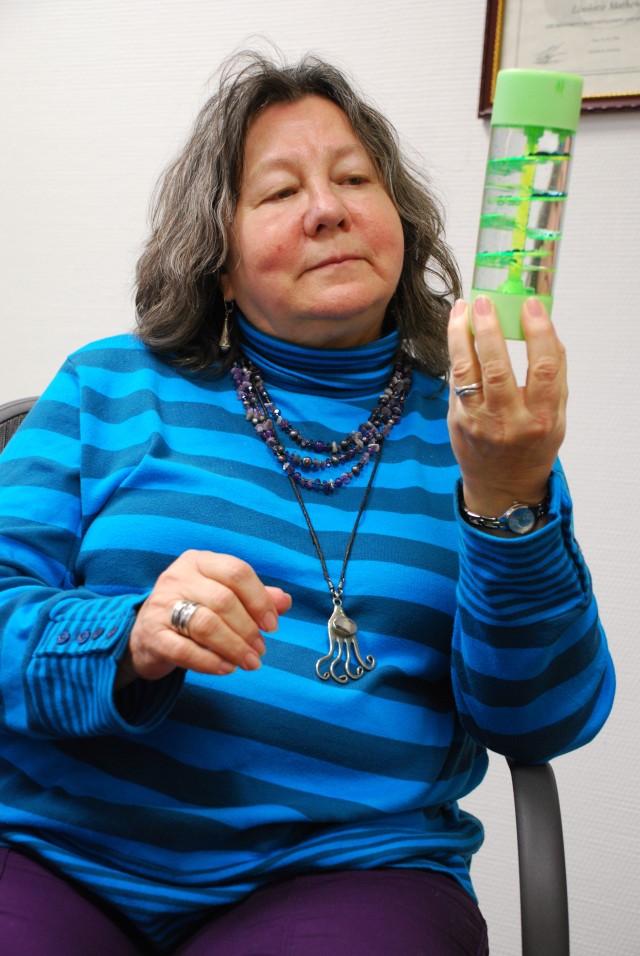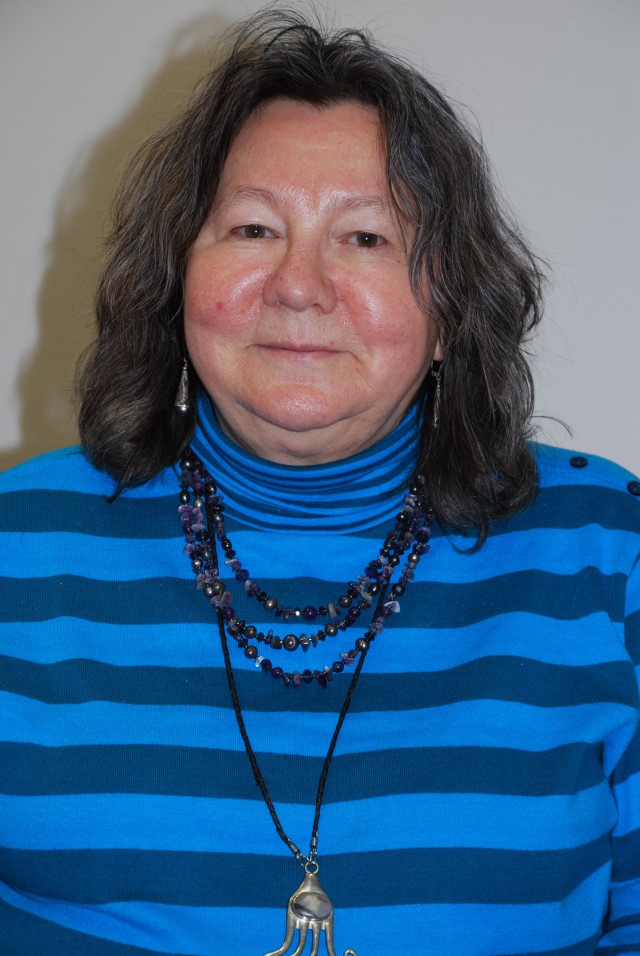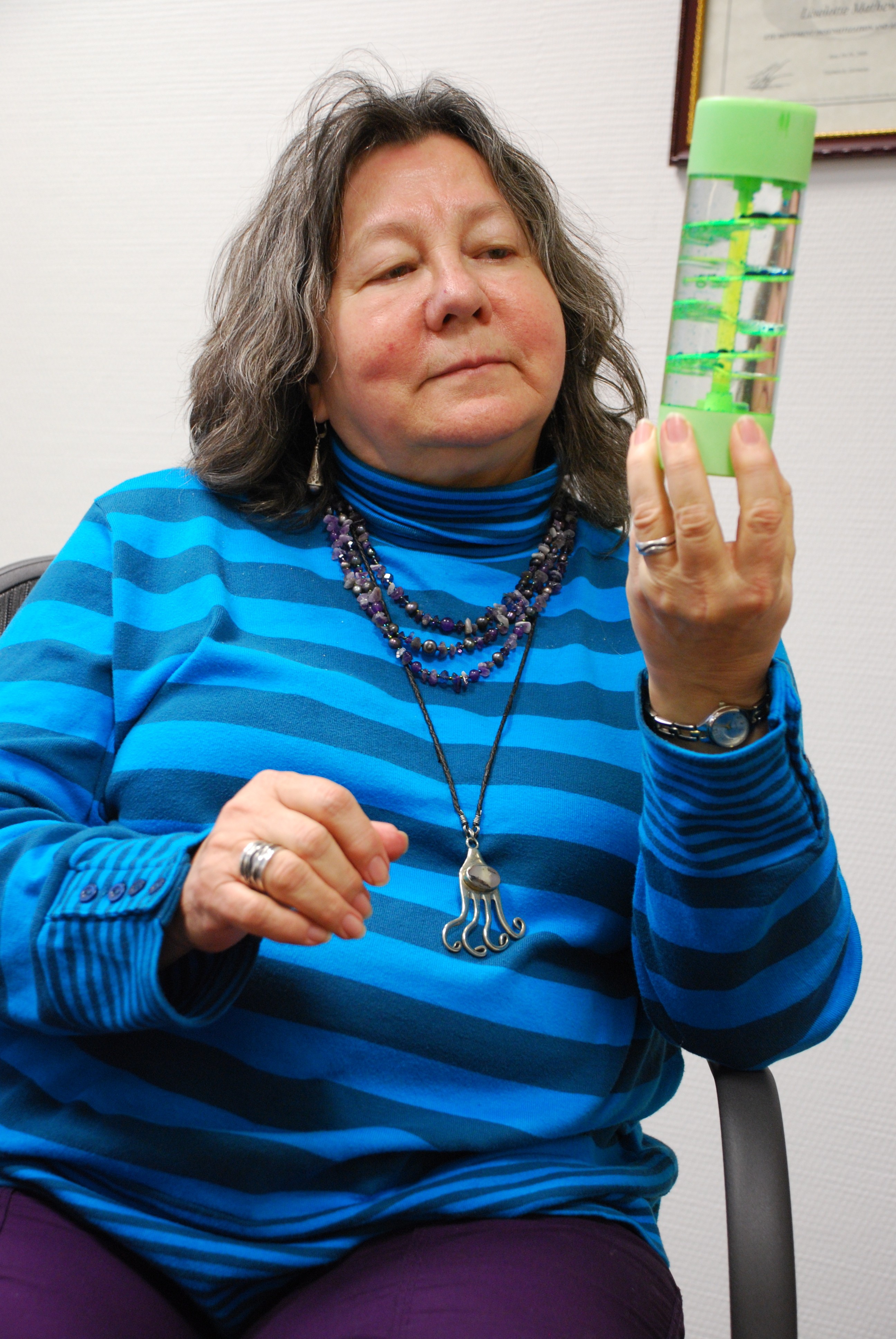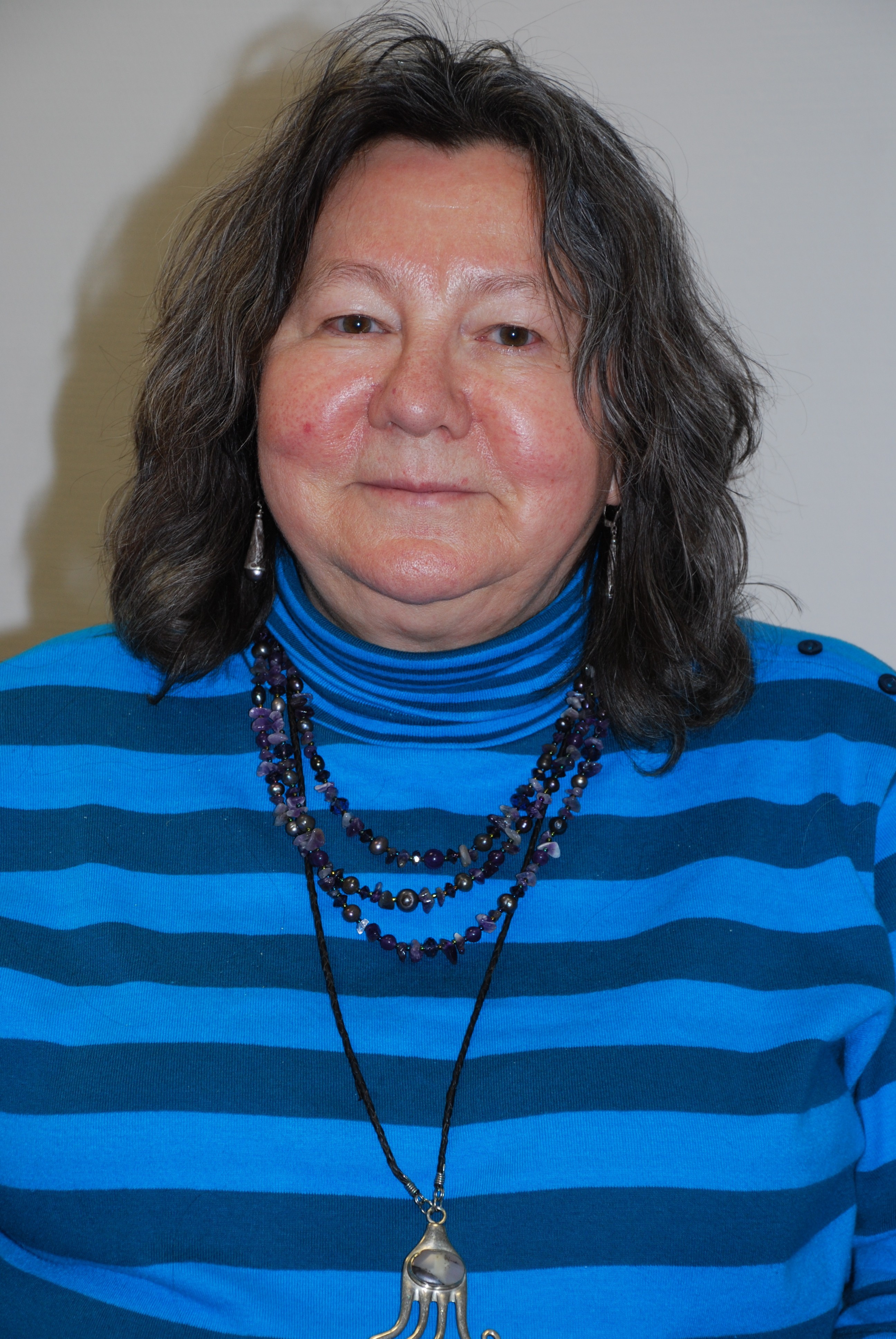VILSECK, Germany - Patients suffering from mild Traumatic Brain Injuries are adjusting to several new challenges like loss of balance, trouble sleeping and feelings of depression. However, mTBI patients who are married or in long-term relationships have an additional hurdle to cross: relearning how to communicate with their partner.
Enter Liselotte Mathews, a licensed clinical social worker at the mTBI Clinic on Rose Barracks. Her primary job is to meet with each mTBI patient and their significant other to do an assessment of how their relationship is working and identify where they could use some help making it better.
"A lot of challenges are connected to mTBI. It's difficult to remember things, they aren't able to concentrate. This all impacts a spousal relationship and the family," Mathews said.
Mathews spends about four hours assessing each set of couples she sees. The first hour is spent talking to the couple together, hours two and three are spent speaking with each person individually and hour four is used to develop a plan of action for the couple.
The questions asked during the assessment vary, but are likely to include: what challenges the couple is currently facing; what their family background is like; what it's like parenting their children together; and even how they first met.
"Trying to understand what the attraction was is really important for any kind of intervention," she said. "When you don't understand what drew the couple together, then you don't know where the goals need to end up."
In the end, most couples face the same basic problem: communication.
"Communication problems are pretty much universal. When a couple needs the least amount of work, it's working on communication and listening skills," Mathews said.
According to Mathews, one of the best remedies is for couples to learn how to date again.
"What makes a long-term relationship work is a series of short-term positive interactions," she said. "Have dating experiences regularly so you can get back in touch and stay in touch with your spouse. Get to know him or her again. Remember why you fell in love with that person."
Mathews said the success rate of couples going through counseling is high, but some are still hesitant to "air their dirty laundry" in front of her. Her response'
"It can't make things worse," she said. "Any time you reach out to a helping professional you increase the probability that you'll improve your relationship or whatever needs improving. That's a guarantee."
Dr. Anne Felde, clinical director of the BMEDDAC TBI Program, stressed that there's nothing wrong with seeking help and that Mathews is the one to call.
"Our patients experience a wide variety of problems related to combat stress and blast injuries sustained in war," Felde said. "Soldiers and their families sometimes need an opportunity to work in counseling to heal these 'relationship wounds' and Ms. Mathews provides that expertly."
With 35 years of social work under her belt, Mathews easily lives up to the title of expert. In fact, she's personally tested all of the tools she recommends to her clients.
"I really do myself what I ask couples to do. That's the only way I know it works," she said.
But don't think she's all work and no play. Mathews believes in achieving personal balance in her life.
"Part of balance in life is work, play and relationships. So I come home to a husband, two dogs and two cats. I don't want to think about what I've been doing all day," she said. "I give a client everything I've got during the session and then I walk them out and I do a nice breathing exercise and just kind of let go before I bring the next client in."
Instead she focuses on building her relationship with her husband with mini trips around Europe and takes care of herself through paper weaving and designing stained glass pieces. When it's time to go to work, she's ready.
"I have to say I have really enjoyed this job," she said. "I guess it's my calling because I never feel like it's too much. I've never felt burnt out."
For more information about couples counseling, contact your local behavioral health clinic.




Social Sharing